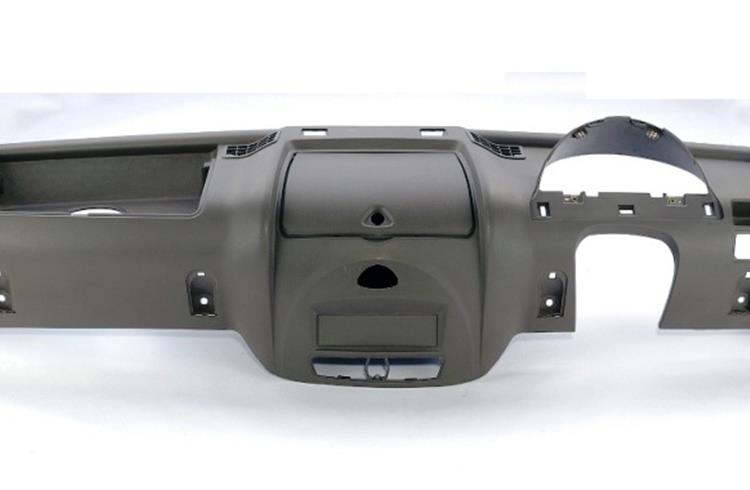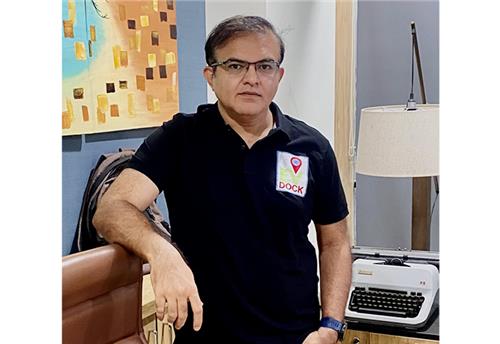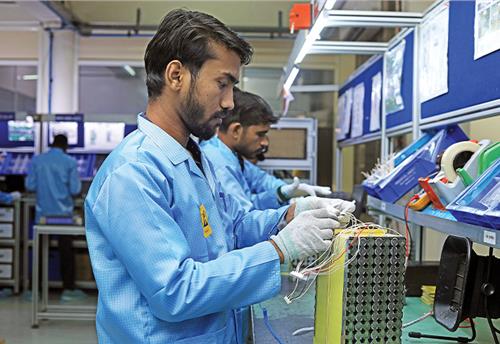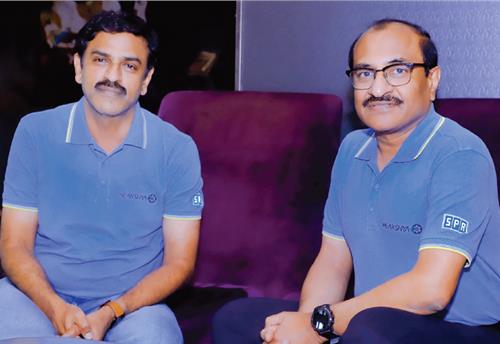Varroc Polymers targets Rs 1,600 crore turnover in FY2017
Varroc Group’s polymer business division is gunning for healthy growth backed by its new product and segment diversification. It has entered into a tech tie-up with Germany's Mekra Lang and commissioned an all-new plant in Chakan.
Varroc Polymers, the second largest business division within the US$ 1.3 billion Varroc Group, is optimistic about growth, thanks to its new product and segment-diversification strategies and the forthcoming opportunities that India’s progressing automotive market is embarking upon.
For the ongoing financial year, Varroc Polymers’ president Neeraj Jain forecasts that this division is likely to cross a turnover of Rs 1,600 crore, which will mark double-digit growth year-on-year.
Speaking to Autocar Professional in an exclusive interaction, Jain revealed that the revenues for his division during the April-September 2016 period remained healthy as per the previously budgeted numbers. “Nevertheless, the next six months (October 2016-March 2017) are expected to improve as the momentum is built in the market and sentiments have dramatically improved. This is likely to fuel growth and we are anticipating a YoY growth in double digits for this fiscal,” he says.
Business from new projects, which are an indicator of a company’s performance over the coming years, remained flat for the previous two financial years, stated the top official. “FY2017 is also expected to remain flat on the front of new projects. However, this will drastically change from the next financial year,” adds Jain.
Two-pronged strategy

Varroc Polymers follows a two-pronged strategy for growing its business – penetrate more into existing customers and get new customers on board with new and fresh orders. The latter part of this business strategy also includes foraying into newer segments where the company has been absent in the past.
It is understood that revenues from its two-wheeler business dominate Varroc’s polymer division’s current turnover. This could change in the future. The company is strategising to have a healthy share of business-split between the revenues from the two-wheeler, four-wheeler and commercial vehicle segments.
How does it plan to achieve this? Varroc Polymers, which has been supplying plastic parts such as front facia, door trims, side body panels to its existing CV customers, has now developed seats and side mirrors for the CV segment. While these two are new product lines for the company, according to Jain, the management has recently signed a technical tie-up with a German company named Mekra Lang for manufacturing side view mirrors. Mekra Lang is a family owned German enterprise with expertise in designing and developing the complete spectrum of mirrors and surround vision systems for commercial vehicles.
In this context, Jain says: “It is a popular company with whom we have signed a technical tie-up for producing side view mirrors. Our customers are aware of this development. The technical tie-up will help us grab new business orders. The two new products – seats and mirrors – will help us make deeper inroads into the CV segment.”
On the passenger vehicle front, the company is looking to further expand its product line-up and customer portfolio in the complete interior and exterior (polymer) assemblies with a special focus on the interior parts. “We plan to produce full dashboard assemblies for passenger cars in the near future and we are currently preparing for the same,” adds Jain.
New plant coming up in Chakan

Varroc Polymers has commissioned an all-new manufacturing plant in Chakan,near Pune, which is expected to go on stream in early 2017. The company plans to produce products for its two-wheeler as well as four-wheeler businesses from this facility. The new unit will take the overall manufacturing footprint to 13 within the Varroc Group’s polymer division alone. For the entire group, the upcoming polymer plant in Chakan will be the 25th manufacturing facility in India. The company refrained from disclosing the investment on the Chakan plant.
“We are spread across all the regions wherever our customers are located. Our upcoming plant in Chakan will be a state-of-the-art facility, which will be capable of manufacturing polymer parts for two- as well as four-wheeler customers,” he says.
Agility in capacity expansion
When Honda Motorcycle & Scooter India (HMSI), one of the many customers of Varroc Polymers, went to Gujarat to set up its scooter-only manufacturing plant in Vithalapur (near Ahmedabad), the company also followed suit by setting up a production unit nearby.
HMSI began production operations at Vithalapur in February 2016 and, as earlier reported by Autocar Professional, its first assembly line reached peak production capacity in June 2016. This made way for Honda to start off the production of scooters on its second assembly line.

Giving a suppliers’ perspective, Jain recalls: “The market demand for scooters is moving rapidly. We were under tremendous pressure when Honda had quickly ramped up its production capacity at Vithalapur plant. We had to ensure that we met their demands with timely delivery of the output. We already had three shifts running totalling over 12 hours per day when HMSI was running only one (assembly) line. With two lines operating at HMSI, we had to make internal adjustment including that of trained manpower between other polymer plants to continue smooth operations at Vithalapur.”
According to Jain, Varroc Polymers had to quickly purchase and install new machines and ensure required manpower on the shopfloor. “Investing in a new plant and ensuring apt capacity utilisation is always an operational challenge. However, we are very agile when it comes to increasing our production capacity. This is our core strength. If you speak to leading moulding machine suppliers in India, you would learn that we are one of the biggest customers in the country. We have the financial discipline and the ability to set up production capacities and deliver products in time,” he adds.
BS VI norms
The upcoming BS VI emission norms are likely to play a crucial role in boosting business for polymer parts suppliers and lightweight technology companies. Jain believes that the government’s push for BS VI emission norms will drive R&D efforts towards weight reduction for improving overall vehicle performance.
Among proven steps to do so, replacement of metal to plastic parts and thin walled mouldings for two- and four-wheelers will continue to stay in demand. “We are also taking up new initiatives on our own and going to our customers with our products and technologies. For example, we have explored lower density foam technology on the seat side in one of our upcoming products. Lightweight product technologies continue to be a cost-sensitive market. We have recently replaced a metal-based front body panel to plastic part for one of our CV customer,” he sums up.
Recommended:
- BS VI, e-mobility and young buyers to reshape India's two-wheeler industry
RELATED ARTICLES
BRANDED CONTENT: Eliminating the worries of battery charging with smart solutions
The charging infrastructure is the backbone of electric mobility but is also one of the key perceived barriers to EV ado...
The battery-powered disruptor
Greenfuel Energy Solutions is planning to shake up the EV battery market with the launch of a portfolio of specially eng...
SPR Engenious drives diversification at Shriram Pistons & Rings
The engine component maker is now expanding its business with the manufacturing of motors and controllers through its wh...





 By Amit Panday
By Amit Panday
 27 Nov 2016
27 Nov 2016
 16547 Views
16547 Views









